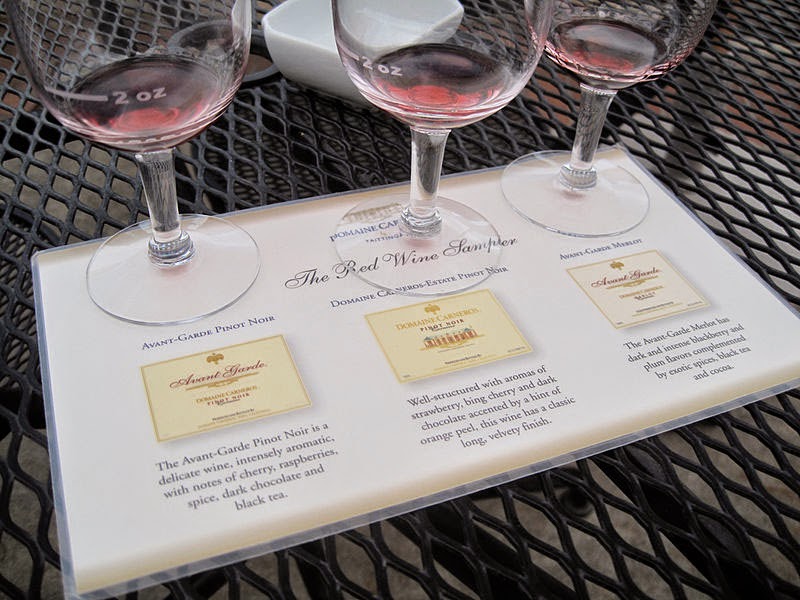Have
you ever had the experience of trying a sample of something, loving it, buying
the full size version of whatever it is, and being terribly disappointed? It’s
happened to me enough times to make me think that some samples are specially
formulated to be better than the real product. It happens most often with
skin-care products and cosmetics, less often with perfume, and less often still
with food and beverages.
I
can think of several benign explanations for the sample-was-better phenomenon.
The first is what I’ll call “context enhancement”. If the sample was tried in a
festive and/or upscale atmosphere that fits the nature of the product, it will
make it seem unusually good. A fragrance sampled in an exclusive perfume
boutique with a friendly and helpful SA will smell better than the same
fragrance self-sampled in a discount warehouse store. The same goes for a wine
tasted from a sparkling wineglass at a beautifully designed tasting room in the
winery itself, presented by friendly and knowledgeable personnel versus the
same wine self-tasted from a tiny plastic throwaway cup at Costco. Beautiful,
congruent surroundings enhance the experience. We smell or taste what we see,
hear and feel. When we get the full size home and experience it in familiar
surroundings, it may well disappoint.
Then
there’s the adaptation phenomenon. This may be especially relevant to skin-care
products, which seem to be effective when first sampled, but then lose their
effectiveness when used regularly. Homeostasis kicks in, and the skin becomes
resistant to whatever the product is supposed to do. With a fragrance, our
olfactory systems may well adapt to it after multiple uses closely spaced in
time. With food or beverages, the novelty quickly wears off, and familiarity
breeds contempt.
Then
there’s the batch variability phenomenon. If you tried the 2010 wine and were
sold the 2011 vintage, it’s not going to be the same as the sample. If you
tried a sample of the original formula of a perfume but were sold a
reformulated version, it most certainly will not be the same. Even without
reformulation, natural materials vary from batch to batch, like vintages of
wine, so there may be subtle differences from batch to batch of a perfume, skin
care product, or food. It seems unlikely that these subtle variations would
have a big impact on quality, but in some cases they might.
The
less charitable explanation is that samples are actually different from the
full-size product, designed to impress the person sampling so that they will
spring for the big size. I’m pretty sure this is the case with some cosmetic
products. The mascara that worked beautifully for months in sample form clumps horribly
within a week of opening the full size. The skin cream sample that made my skin
smooth and moist, is totally ineffective and even smells different when I buy
the full size. One perfume in particular was lovely in sample form but horrible
in full size. Why, oh why did I fall for the sample and buy a full bottle?
What
is your experience with sampling? If you buy a full size, does it always live
up to your expectations? If not, why not?
[All images from Wikimedia except mascara samples from an old page of a retailer's website]












